For all the praise Mad Men receives for its cast and period detail, the main draw is its penchant for beautifully and tragically highlighting the human condition. Mad Men is about an advertising agency going through the tumultuous and culturally-shattering period that was the 1960s, but it's also a timeless story about our collective humanity.
Mad Men certainly had a way with ending episodes. Unlike some shows that utilize cliffhangers, Mad Men used its endings to comment on the episode's themes and the show's larger emphasis on the human condition. As such, many of its endings have become mini-masterpieces in and of themselves.
10 The Coke Commercial
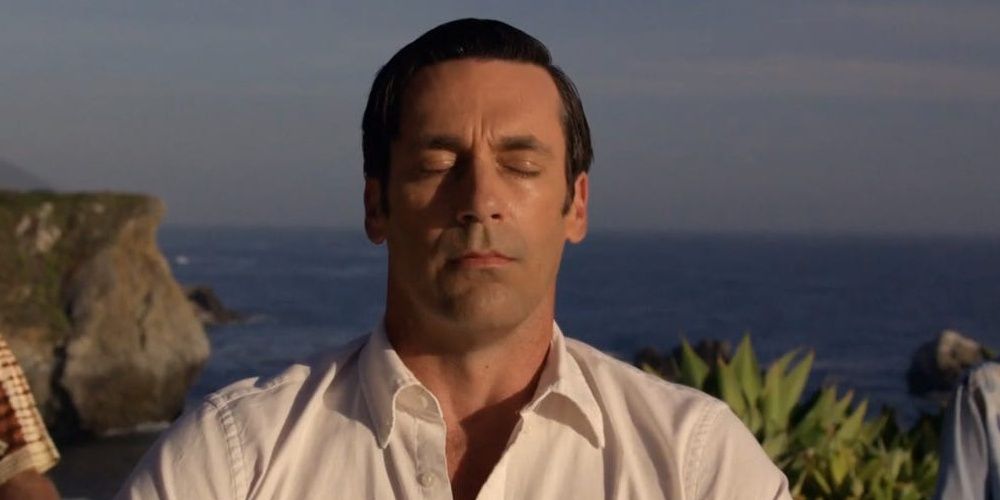
Mad Men fittingly ends with a commercial. But not just any commercial - the iconic "Buy the World a Coke" Coke advertisement from 1971. It's implied that Don is the man behind the commercial, as the show smash cuts from his oceanside retreat to the commercial itself. Now what this says about the show, and about the character of Don Draper, remains ambiguous.
Many see it as a downer ending, as Don abandoned spiritual contentment for the advertising business and manipulated a movement of peace and love into financial gain.
9 The Codfish Ball
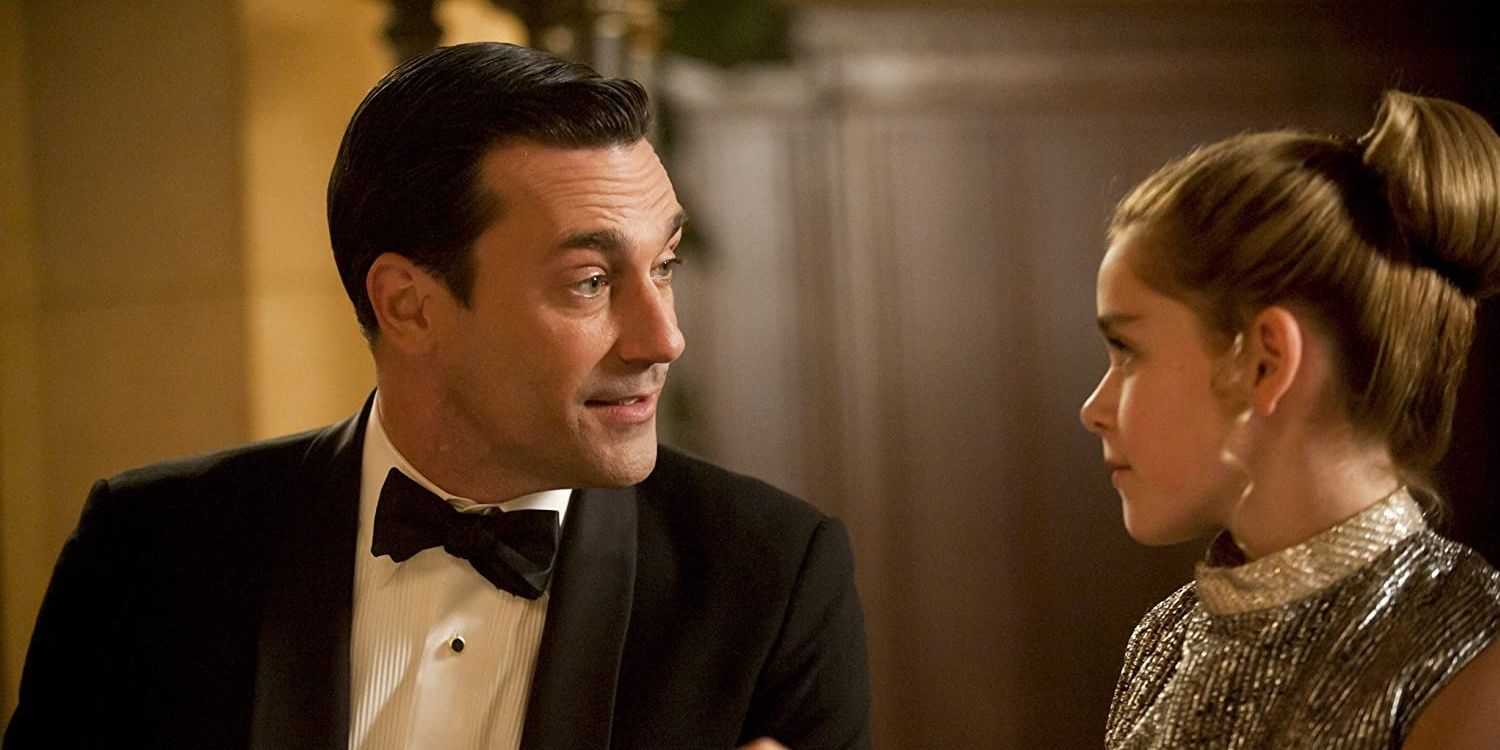
Speaking of downer endings, it doesn't get much more depressing than season five's At the Codfish Ball. This episode ends on a brilliant shot of each character returning to the table–each of them having experienced some degree of disappointment.
Emile and Marie aren't content with their marriage or their daughter's life, Megan realizes that she has disappointed her father, Don realizes that he has burned professional bridges with his letter, and Sally returns from seeing Marie and Roger in the other room. When she talks to Glen, all she can say is that the city is "dirty."
8 SCDP & The Civil Rights Movement
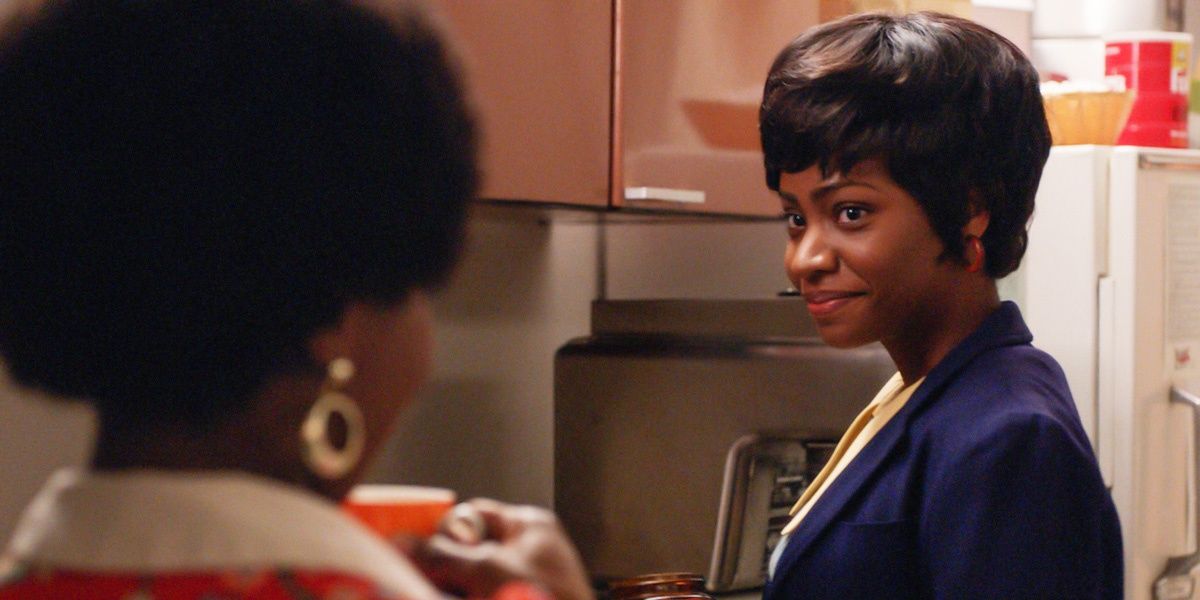
It was only a matter of time before Mad Men hit on the civil rights movement, and that moment brilliantly came in the season five opener A Little Kiss. This episode both opens and closes with Black people in ad agencies - it opens with a group accosting the ad men of throwing water balloons, and it ends with them proudly applying for a position at SCDP.
While the newspaper ad itself was a joke, SCDP decides to hire anyway, and Lane proudly goes out to accept resumes while Dusty Springfield plays in the background.
7 The Carousel
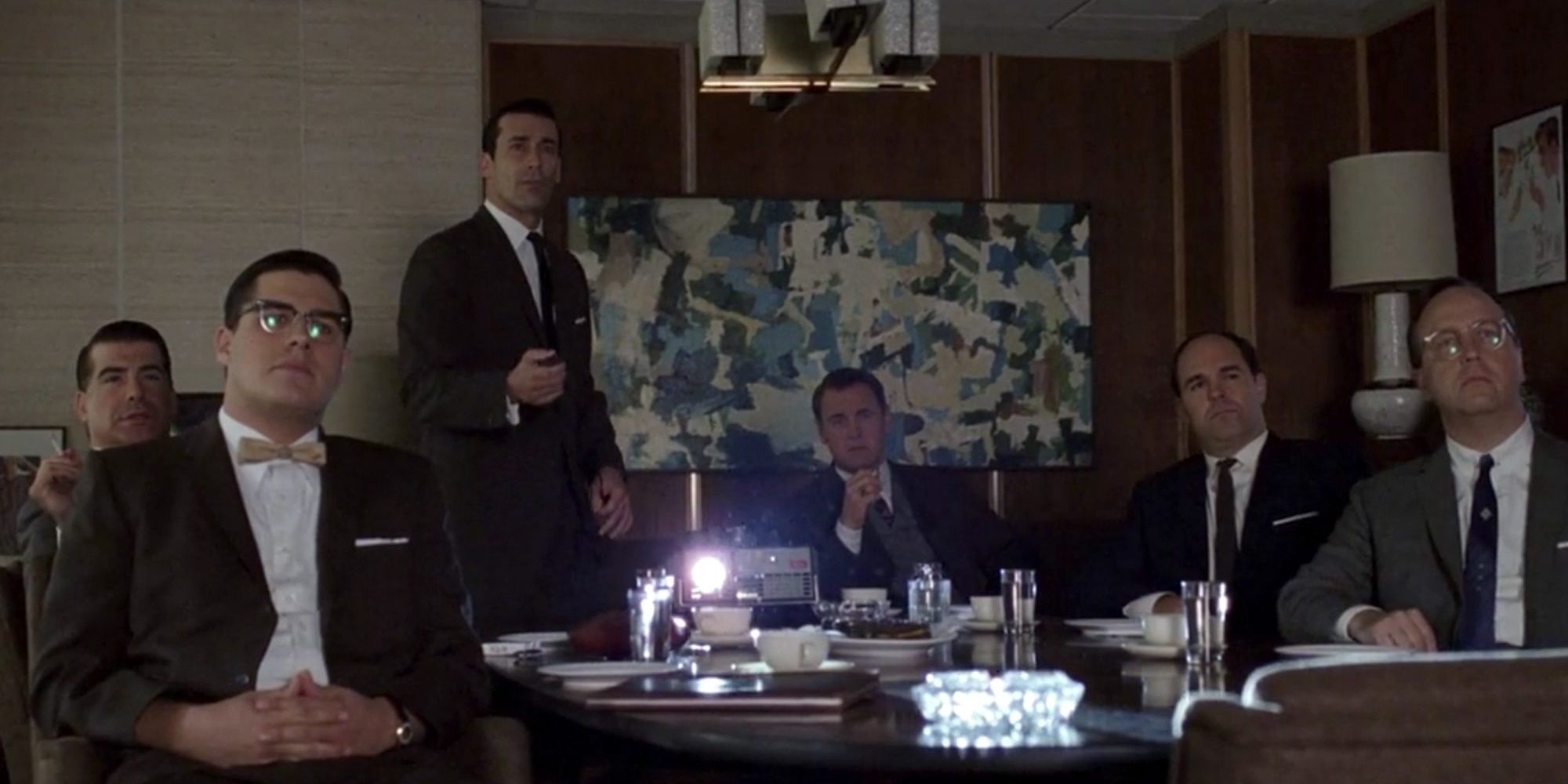
The first season ends in spectacular, and spectacularly tragic, fashion with The Wheel. While pitching carousel slide projectors to Kodak, Don realizes the love he has for his family and returns home with the hope of reconciling before Betty and the kids leave for Thanksgiving.
In a lesser, somewhat cornier show, he would have arrived in time and the season would have a happy ending. And while the episode portrays Don reconciling with the family, this is revealed to be Don's hopeful imagination. He fails to arrive in time, and he sits alone in an empty house. It's the perfect image on which to end the season.
6 "Who Are You Supposed To Be?"
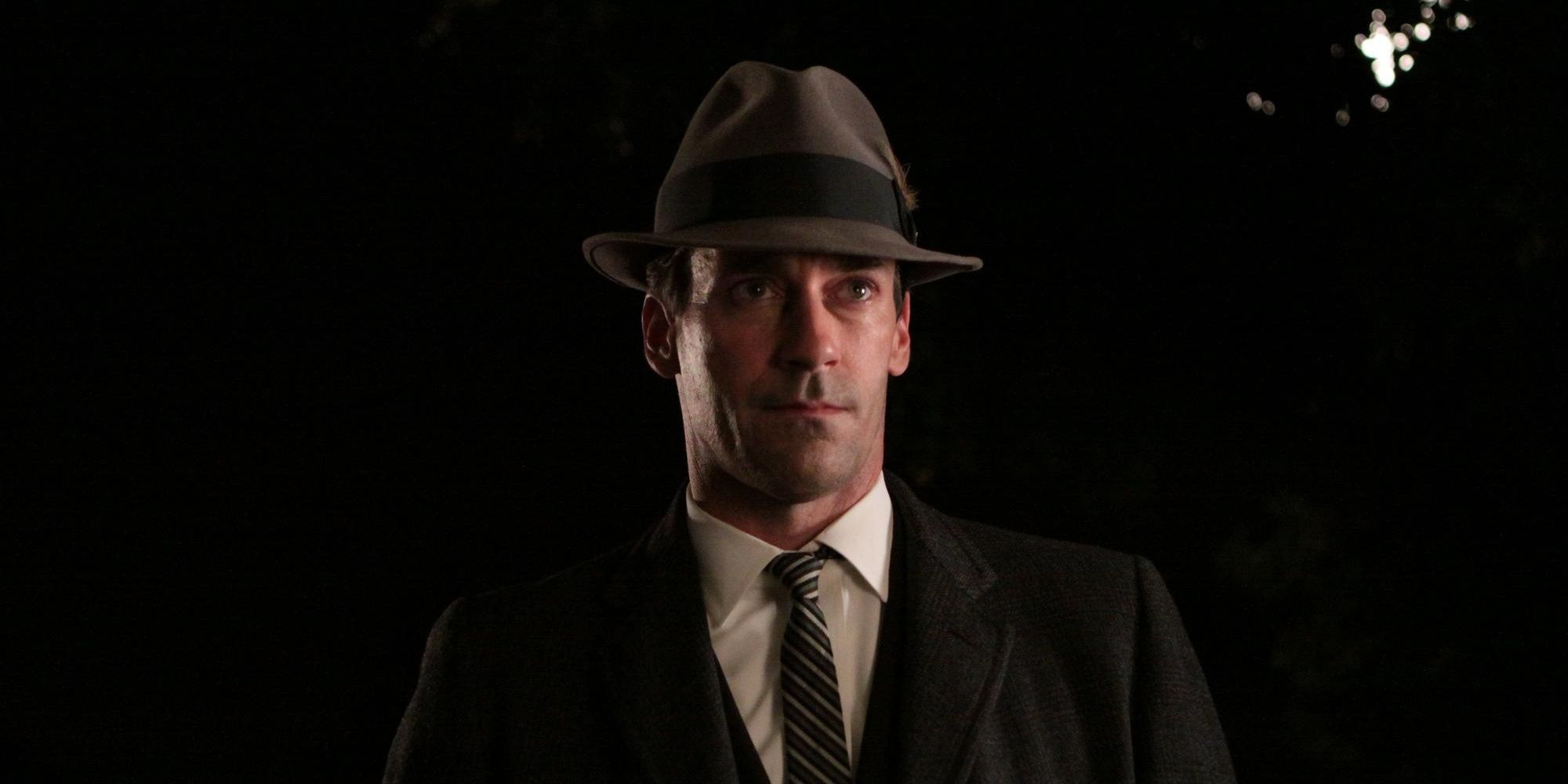
Mad Men has a brilliant way of ending episodes with a thematic quote. One of the best comes in the season three episode The Gypsy and the Hobo. Having caught Don in his life, he finally reveals the truth about his past to Betty. The entire episode revolves around Don's theft and identity crisis, so it's only fitting that it ends on such a meaningful line.
Taking his kids trick-or-treating, a man sees Don in his coat and hat and asks, "Who are you supposed to be?" Don simply stares back without an answer before the screen cuts to black. Brilliant.
5 "Now We Have To Find A Place For You."
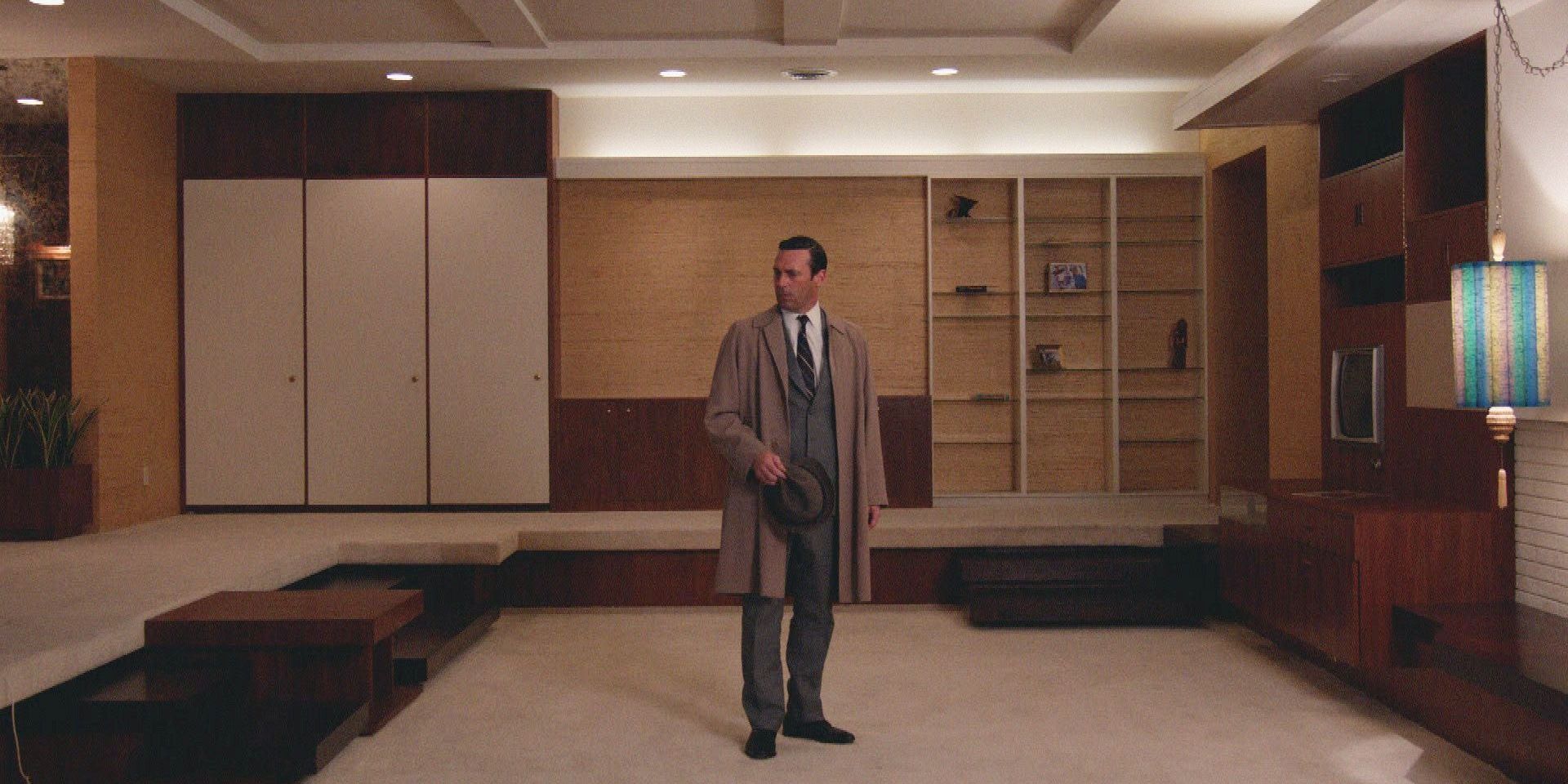
Another touching and amazing example of a thematic closing quote comes in season seven's The Forecast. Having finally sold his apartment, Don's real estate agent ushers him outside into the hallway and proudly tells him "Now we have to find a place for you!" She obviously means a new home, but this being Mad Men, the theme and meaning run far deeper than that.
Don has always been lost and adrift, and he may never find "a place." This is signified by the episode's closing shot, as Don stands all alone in the ever-expanding hallway.
4 Tomorrow Never Knows
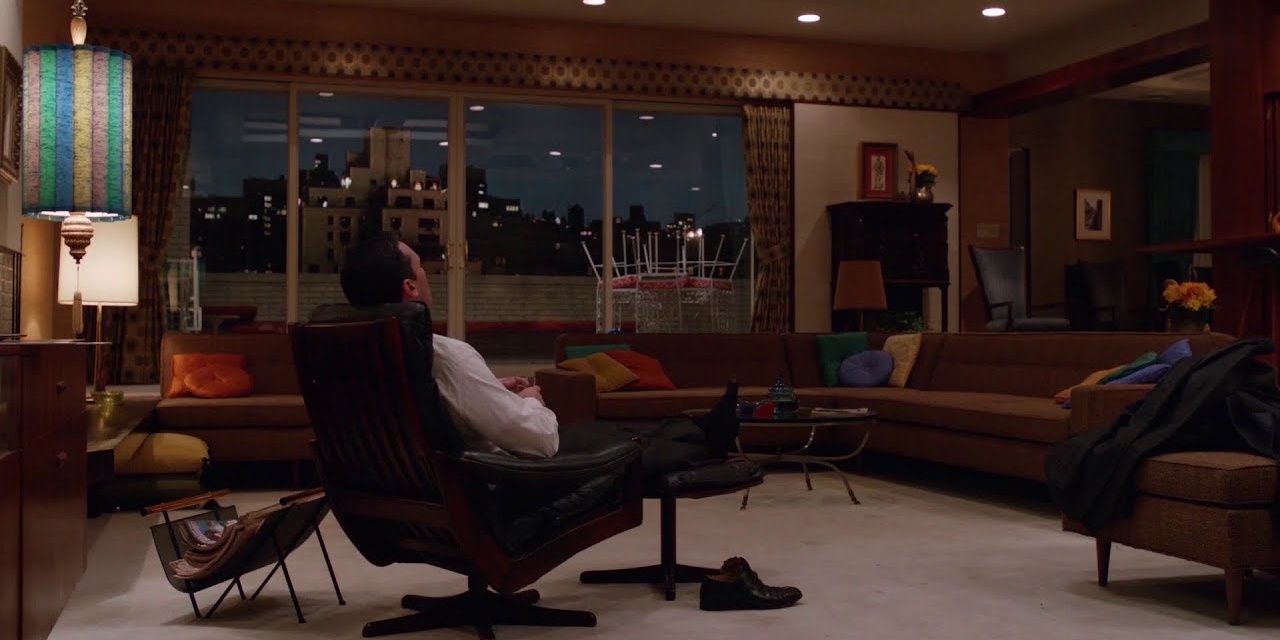
Mad Men utilized some brilliant music in its closing sequences, but few were used as well as The Beatles' "Tomorrow Never Knows." Throughout the episode, Don has trouble connecting with the youth and "the times." He also says, on more than one occasion, that he "knows what The Beatles sound like."
By the end of the episode, Megan gives him Revolver and tells him to put on "Tomorrow Never Knows." He does so, but he quickly turns it off in frustration and goes to bed. The '60s, and the counterculture, have officially arrived, and Don wants no part of it.
3 "Open Or Closed?"
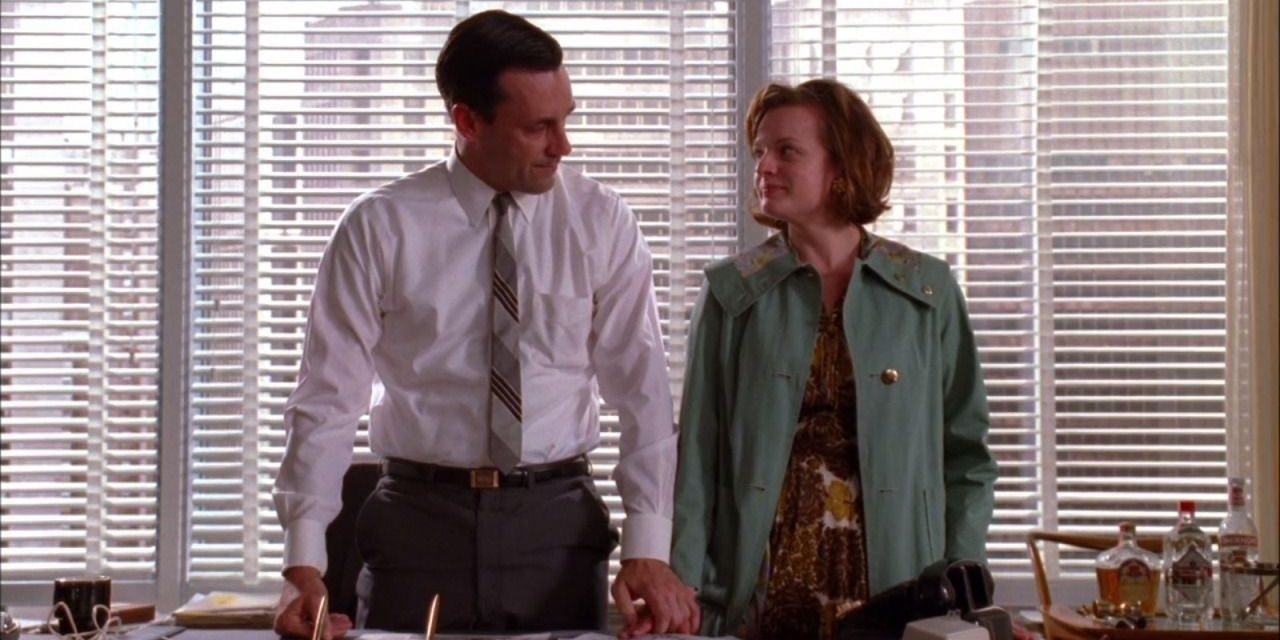
Season four's The Suitcase is often heralded as the greatest episode of Mad Men, and for good reason. It also has one of the best endings of the series - even if it is a bit on the nose. Don is notoriously closed off from those around him, but Peggy sees his true self throughout The Suitcase.
He is brutally frank with her, and he openly cries in front of her after learning about Anna Draper. When Peggy asks if he wants the door open or closed, he answers "open." The camera reveals Don behind an open door, beautifully signifying a potential change in approach and demeanor.
2 "This Is Where I Grew Up."
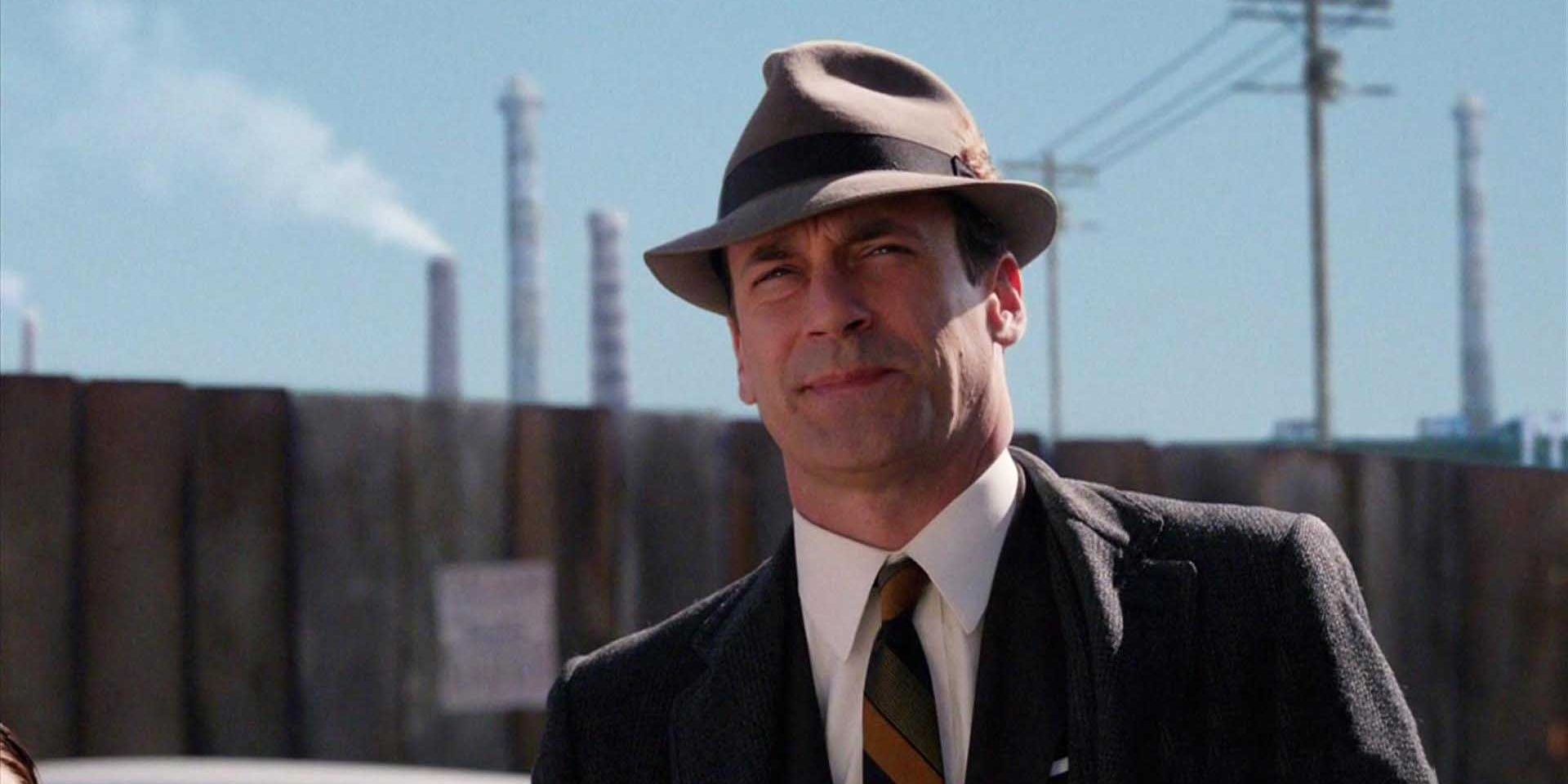
Mad Men contained a few brilliant season finales, and season six's In Care Of is certainly no exception. The ending of this episode is particularly gorgeous, as Don and his children take a trip to Don's childhood home.
He tells them "this is where I grew up," and the camera reveals a dilapidated house with furniture strewn all over the yard. Judy Collins's "Both Sides Now" begins to play as Sally looks at Don, an expression of sympathetic understanding pasted on her face.
1 "Are You Alone?"
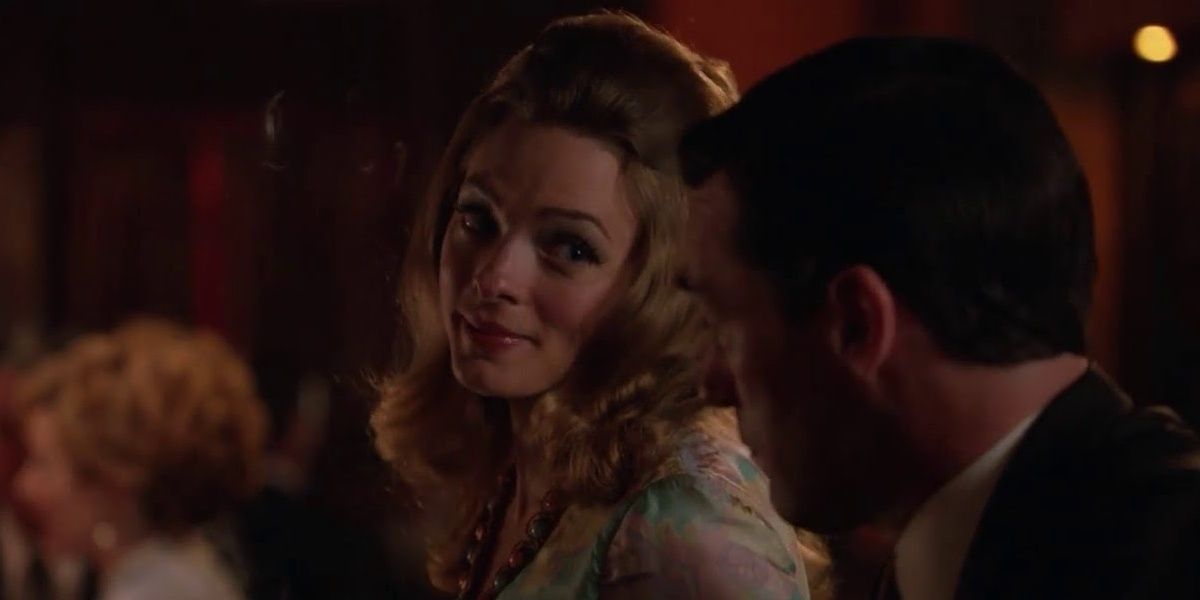
But perhaps the greatest ending in Mad Men history is the season five finale, The Phantom. Don walks away from Megan, embracing the long darkness and leaving the color that envelops Megan as Nancy Sinatra's "You Only Live Twice" begins playing.
Following a montage showing various characters in lonely situations, an attractive woman approaches Don and asks, "Are you alone?" It works on a surface level, as Don's look - paired with the rising level of the music - is chill-inducing. But, like most ending quotes of Mad Men, it works on a far deeper, and more emotional, level.
from ScreenRant - Feed https://ift.tt/330BAO3


0 Comments